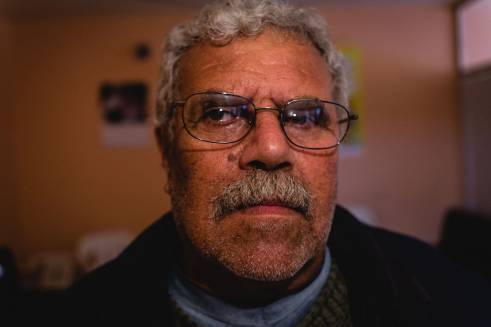By Rosaleen Cunningham
Four years since the beginning of the conflict in Syria, over 3.9 million people have fled the country and over one million of those are now living indefinitely in Lebanon.
The crisis, which has created the largest refugee movement in over twenty years, has put a huge strain on the resources and capacity of the host government and communities.
We believe that older people from both the refugee and host communities have been disproportionally affected by the crisis and that their needs are poorly addressed.
Older refugees struggle to access healthcare
Emanuela Rizzo, HelpAge’s Regional Programme Manager explains: “Lebanon has a fragmented and uncoordinated healthcare system, which has struggled to cope with the health needs of the newcomers.
“The healthcare system is highly privatised, which raises huge problems for refugees, and particularly older refugees with chronic health conditions, such as diabetes or hypertension.”
Last year, joint research with Handicap International found that 54% of older refugees in Lebanon and Jordan have a chronic health condition. In addition, 65% of older refugees are suffering from psychological distress.
Life is getting harder
HelpAge’s emergency response programme offers healthcare to Syrian refugees and older Lebanese people living in areas of high-refugee populations. 62-year-old Afif al Hanoun is a member of the host community whose life has been affected by the crisis.
“Since the beginning of the Syrian crisis, prices have gone up and wages have gone down. This has made life harder. In particular, my health problems make the situation worse. I suffer from diabetes, hypertension and heart disease but I am still working as a tailor six days a week. I need to work because I am the only one earning income in the family.”
Afif receives medication and tests for his chronic conditions from HelpAge. He told us: “HelpAge is very effective in our community as they offer help to people who could not otherwise afford the medication and tests.”
Medical help unaffordable
53-year old Fteim El Salam is originally from Homs in Syria and now lives in Khiyara in Beqaa, Lebanon. His family was separated when he fled and some were left behind.
“As a family we have financial difficulties here because the rent is high and salaries are low. My son works from seven o’clock in the morning until midnight and earns LBP 10,000 (US$ 6.70).”
They were registered with UNHCR but are no longer eligible for assistance. This financial pressure impacts the way Fteim copes with health issues.
He said: “I suffer from diabetes, high blood pressure, hypertension and tissue calcification but I could not pay for the test to find out if surgery was necessary. I have to spend a lot of money on painkillers. The financial problems are very stressful and I am always worried and anxious.
“I now receive medication for my high blood pressure and my heart disease. I also saw a cardiologist and received lab tests for free. I used to have difficulties moving around but now with the help I received I am able to walk and be more active.”
Providing drugs and medical training
We are working in Lebanon with local authorities and a range of local partners including Amel, the American University of Beirut, Medecins Du Monde and the YMCA, on reducing the impact of non-communicable diseases on older people.
We are providing drugs, such as diuretics, and medical equipment to measure blood pressure and blood sugar through static and mobile clinics.
We are also boosting the capacity of medical and non-medical staff to manage patients with chronic conditions.
As these large numbers of refugees are likely to remain in Lebanon for several years, we must be prepared for the long-term provision of treatment to both host and refugee communities. It is also crucial to support the local infrastructure in Lebanon to make sure they will be able to cope with the longer term emergency.
